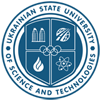Improving the Inclusive Information Space: Introducing Chatbots into the Work of Academic Libraries
DOI:
https://doi.org/10.15802/unilib/2024_317408Keywords:
chatbot, academic library, artificial intelligence, inclusivenessAbstract
Objective. The purpose of the publication is to study the possibilities of using chatbots as one of the tools for developing an inclusive environment in an academic library. Methods. The study analyzed international experience and software for creating AI-based chatbots. Results. An academic library can use open-source software to create chatbots, but this method will require significant resources. An alternative is commercial services, which are quite easy to use but require monthly funding. Conclusions. Chatbot is a very promising direction for building an inclusive direction, and each library can choose how to create and use it according to its needs.
References
Biblioteka Natsionalnoi muzychnoi akademii Ukrainy im. P. I. Chaikovskoho. (n.d.). Kontakty. Retrieved from https://lib.knmau.com.ua/about/contacts/ (in Ukrainian)
Botonic. (n.d.). Welcome to Botonic Documentation. Retrieved from https://botonic.io/docs/welcome/ (in English)
Botpress. (n.d.). Home [Website]. Retrieved from https://botpress.com/ (in English)
Cambridge University Press & Assessment. (n.d.) Inclusion. In Cambridge dictionary. Retrieved from https://dictionary.cambridge.org/dictionary/english/inclusion (in English)
Chatling. (n.d.). Home [Website]. Retrieved from https://chatling.ai/ (in English)
Dovidnyk bezbariernosti. (n.d.). Home [Website]. Retrieved from https://bf.in.ua/ (in Ukrainian)
Georgia Tech Library. (n.d.). Ask Us! Retrieved from https://library.gatech.edu/help (in English)
IGI Global. (n.d.). What is Software Framework. In InfoScipedia. Retrieved from https://www.igi-global.com/dictionary/software-framework/27680 (in English)
KPI Library. (n.d.). Ask the librarian. Contacts (staff) Retrieved from https://www.library.kpi.ua/zapytaj-bibliotekarya-3/ (in Ukrainian)
Lappalainen, Y., & Narayanan, N. (2023). Aisha: A custom AI library chatbot using the ChatGPT API. Journal of Web Librarianship, 17(3), 37-58. doi: https://doi.org/10.1080/19322909.2023.2221477 (in English)
Ministerstvo rozvytku hromad ta terytorii Ukrainyю (n.d.). Bezbariernyi prostir. Retrieved from https://mtu.gov.ua/timeline/Bezbarerniy-prostir.html (in Ukrainian)
The University of Queensland. (n.d.). Need help? Ask the Library Chatbot. UQ Library. Retrieved from https://web.library.uq.edu.au/blog/2024/07/need-help-ask-library-chatbot (in English)
University of Wollongong Library. (n.d.). Ask the Library. Retrieved from https://uow.libanswers.com/ (in English)
Zayed University. (n.d.). Aisha ChatBot project. LibGuides: Artificial Intelligence. Retrieved from https://zu.libguides.com/ai/aisha-chatbot (in English)








